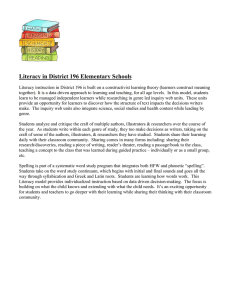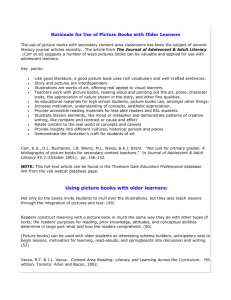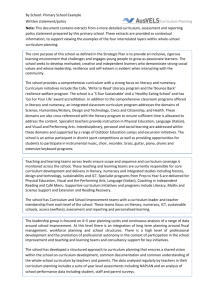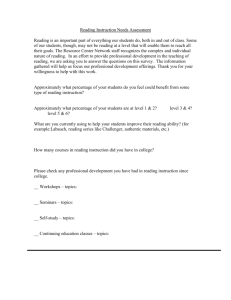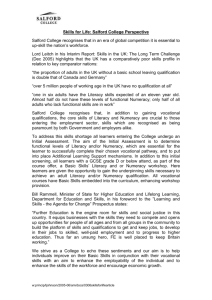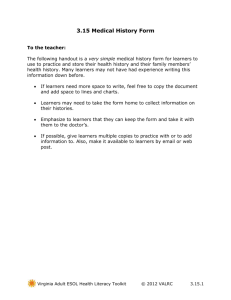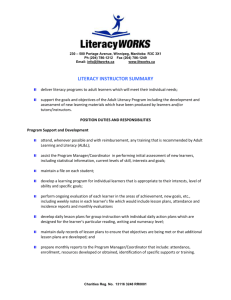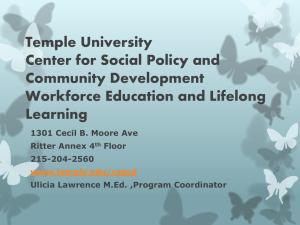Graduate Profile - University of Otago
advertisement
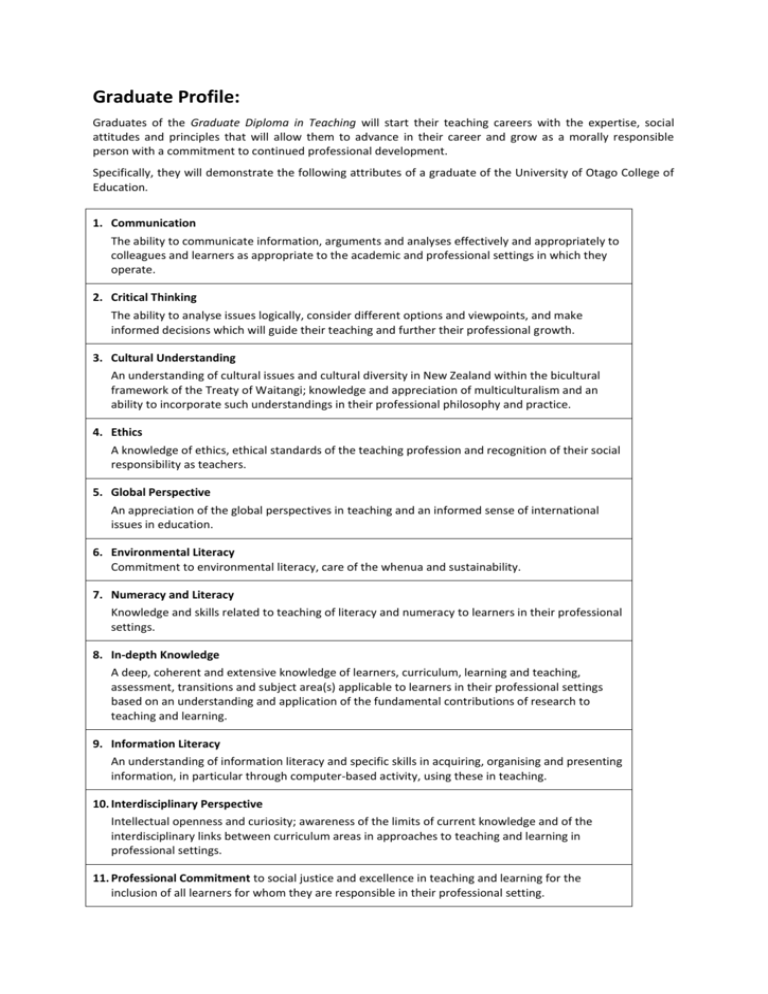
Graduate Profile: Graduates of the Graduate Diploma in Teaching will start their teaching careers with the expertise, social attitudes and principles that will allow them to advance in their career and grow as a morally responsible person with a commitment to continued professional development. Specifically, they will demonstrate the following attributes of a graduate of the University of Otago College of Education. 1. Communication The ability to communicate information, arguments and analyses effectively and appropriately to colleagues and learners as appropriate to the academic and professional settings in which they operate. 2. Critical Thinking The ability to analyse issues logically, consider different options and viewpoints, and make informed decisions which will guide their teaching and further their professional growth. 3. Cultural Understanding An understanding of cultural issues and cultural diversity in New Zealand within the bicultural framework of the Treaty of Waitangi; knowledge and appreciation of multiculturalism and an ability to incorporate such understandings in their professional philosophy and practice. 4. Ethics A knowledge of ethics, ethical standards of the teaching profession and recognition of their social responsibility as teachers. 5. Global Perspective An appreciation of the global perspectives in teaching and an informed sense of international issues in education. 6. Environmental Literacy Commitment to environmental literacy, care of the whenua and sustainability. 7. Numeracy and Literacy Knowledge and skills related to teaching of literacy and numeracy to learners in their professional settings. 8. In-depth Knowledge A deep, coherent and extensive knowledge of learners, curriculum, learning and teaching, assessment, transitions and subject area(s) applicable to learners in their professional settings based on an understanding and application of the fundamental contributions of research to teaching and learning. 9. Information Literacy An understanding of information literacy and specific skills in acquiring, organising and presenting information, in particular through computer-based activity, using these in teaching. 10. Interdisciplinary Perspective Intellectual openness and curiosity; awareness of the limits of current knowledge and of the interdisciplinary links between curriculum areas in approaches to teaching and learning in professional settings. 11. Professional Commitment to social justice and excellence in teaching and learning for the inclusion of all learners for whom they are responsible in their professional setting. 12. Lifelong Learning A commitment to lifelong learning, with the ability to apply knowledge, develop existing skills, adapt to a changing environment, and acquire new skills. 13. Research The ability to conduct, critique and interpret research findings and to participate in research appropriate to teaching and learning by recognising when information is needed, and locating, retrieving, evaluating and using it effectively. 14. Scholarship A commitment to the fundamental importance of the acquisition and development of knowledge and understanding of teaching and learning. 15. Self-motivation The capacity for self-directed activity and the ability to work independently. 16. Teamwork The disposition and ability to work effectively as both a team leader and a team member with learners, colleagues, parents, whanau and caregivers. 17. Professional Readiness Demonstrate the role of the teacher, their place in society, their values and their impact on practice.

